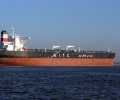in International Shipping News 30/05/2018
 It will be months before new U.S. sanctions against Iran take hold, but global shipping operators are already pulling back from the big oil-exporting nation.
It will be months before new U.S. sanctions against Iran take hold, but global shipping operators are already pulling back from the big oil-exporting nation.
The world’s two biggest shipping lines, Denmark’s Maersk Line and Swiss-based Mediterranean Shipping Co., said they were winding down general cargo shipments, while tanker owners said they plan to move their vessels to other oil-producing countries in the Middle East or West Africa.
Even though the U.S. is alone in imposing the new sanctions, “I don’t think any shipping line that operates globally will be able to do business in Iran if the sanctions arrive in full force, the way they are intended,” said Soren Skou, Maersk’s chief executive.
Maersk and MSC have been moving everything from electronics and household goods to food and heavy machinery to Iran. Mr. Skou said Maersk’s Iran operations are small, but with an Iranian population of 80 million, carriers heralded the lifting of earlier sanctions in 2016 as the opening of an important Middle East trade destination.
The Trump administration has given the industry until early November to end operations in Iran, which exported a record 2.6 million barrels of crude a day in April. The sanctions also will affect ship-insurance premiums, lines of credit for moving cargo, and ship-fuel suppliers.
Pulling Iran off the service map for crude carriers will be a blow to the world’s tanker operators. Shipowners in that sector have suffered from a glut of global capacity and now will see the world’s fifth-biggest oil producer removed from their market. Iran accounts for 5% of global output and the majority of Iran’s oil is exported to China, Japan, India and South Korea.
Shipowners in China, which currently buys roughly 650,000 barrels of Iranian crude a day, said they expect Iran’s total daily crude shipments to drop by more than half.
“We won’t dare to risk any violations as we also have a bulk of our business involving shipping oil between the U.S. to the Far East,” said a senior executive of a China state-owned oil-shipping major, who asked not to be named. “What concerns us is that our ships won’t be able to sail to the U.S.”
The carriers that will hurt the most are Iran’s two state-owned firms, National Iranian Tanker Co. and Islamic Republic of Iran Shipping Lines.
A spokesman for NITC, which operates around 5% of the world’s tanker fleet, including 38 very large crude carriers, or VLCCs, said it was too early to comment on the sanctions. But people involved in the matter said NITC may mothball some of its VLCCs and use them as “floating storage” in view of rising oil prices.
IRISL, which operates about 120 container ships, dry-bulk carriers and chemical tankers, has been looking to replace its aging fleet and join the world’s big shipping alliances.
It has placed orders for four container ships and six chemical tankers with South Korea’s Hyundai Heavy Industries Co. Ltd., worth about $650 million, according to people involved in the deal.
IRISL is considering whether to ask Hyundai Heavy to speed up deliveries before the sanctions go into effect, delay or cancel the orders, according to people familiar with the matter. Hyundai Heavy didn’t respond to requests for comment.
“The U.S. sanctions create a very challenging environment for shipowners, ” said Basil Karatzas, a New York-based shipping consultant, who works with some of the world’s biggest shipping companies. “They could be blacklisted for moving Iranian crude or other cargo, fined and prohibited from doing business with the U.S. It’s not worth the risk.”

Thank you for your sharing. I am worried that I lack creative ideas. It is your article that makes me full of hope. Thank you. But, I have a question, can you help me?